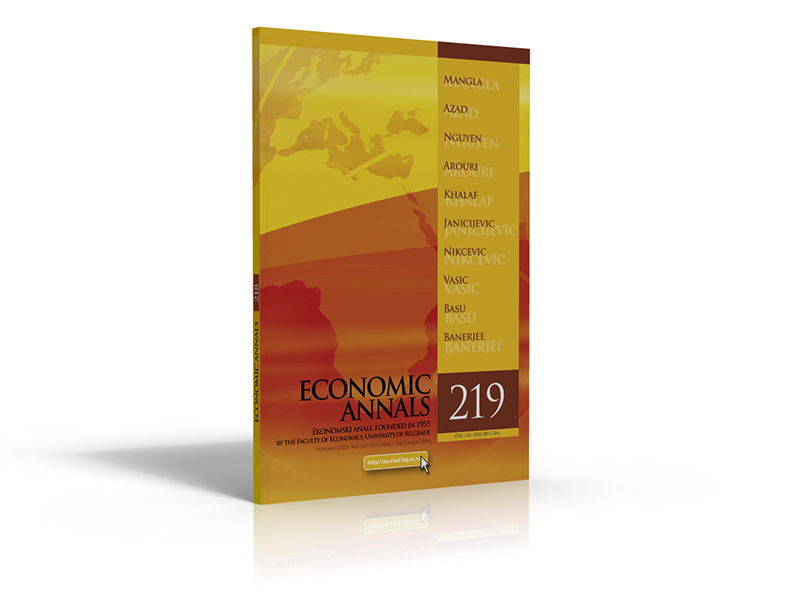A THEORETICAL ANALYSIS OF PRODUCT VERSIONING IN THE CONTEXT OF COMMERCIAL PIRACY
##plugins.themes.bootstrap3.article.main##
##plugins.themes.bootstrap3.article.sidebar##
Paulomi Basu
Tanmoyee Banerjee
Tanmoyee Banerjee
Abstract
The study develops a vertically differentiated duopoly model in the presence of commercial piracy with two groups of consumers, a business group and a home group, with the former having higher willingness to pay for the product. A firm producing an original information good sells it with endogenously chosen product quality and acts as a price leader, and the commercial pirate becomes the price follower. There exists a stringent government policy of monitoring commercial piracy, which increases the marginal cost of the pirate. We study and compare the two regimes of no-versioning (selling a single quality product) and product versioning (selling products with different price and quality combinations to different consumer groups). In the versioning regime, depending upon demand and government monitoring parameters, two equilibria are observed. Comparing the original firm’s profit in each of these versioning cases suggests that versioning may or may not be the original firm’s optimal strategy in the presence of commercial piracy. This result is counterintuitive to existing literature on product versioning in the context of enduser piracy.
##plugins.themes.bootstrap3.article.details##
Keywords
Intellectual Property Right, Product-versioning, Commercial Piracy, Heterogeneity, Quality
JEL Classification
L13, L15
Issue
Section
Articles
How to Cite
Basu, P., & Banerjee, T. (2018). A THEORETICAL ANALYSIS OF PRODUCT VERSIONING IN THE CONTEXT OF COMMERCIAL PIRACY. Economic Annals, 63(219), 115-136. https://doi.org/10.2298/EKA1819115B
How to Cite
Basu, P., & Banerjee, T. (2018). A THEORETICAL ANALYSIS OF PRODUCT VERSIONING IN THE CONTEXT OF COMMERCIAL PIRACY. Economic Annals, 63(219), 115-136. https://doi.org/10.2298/EKA1819115B

